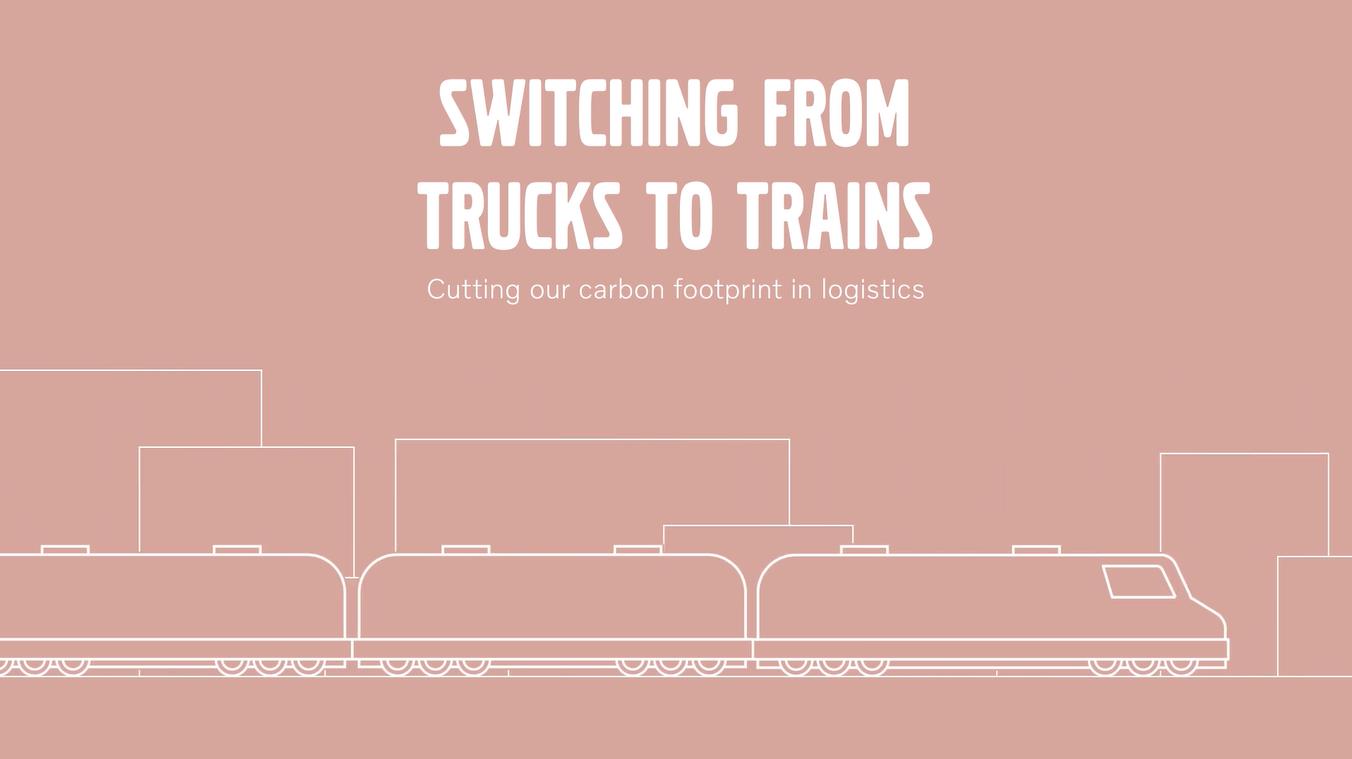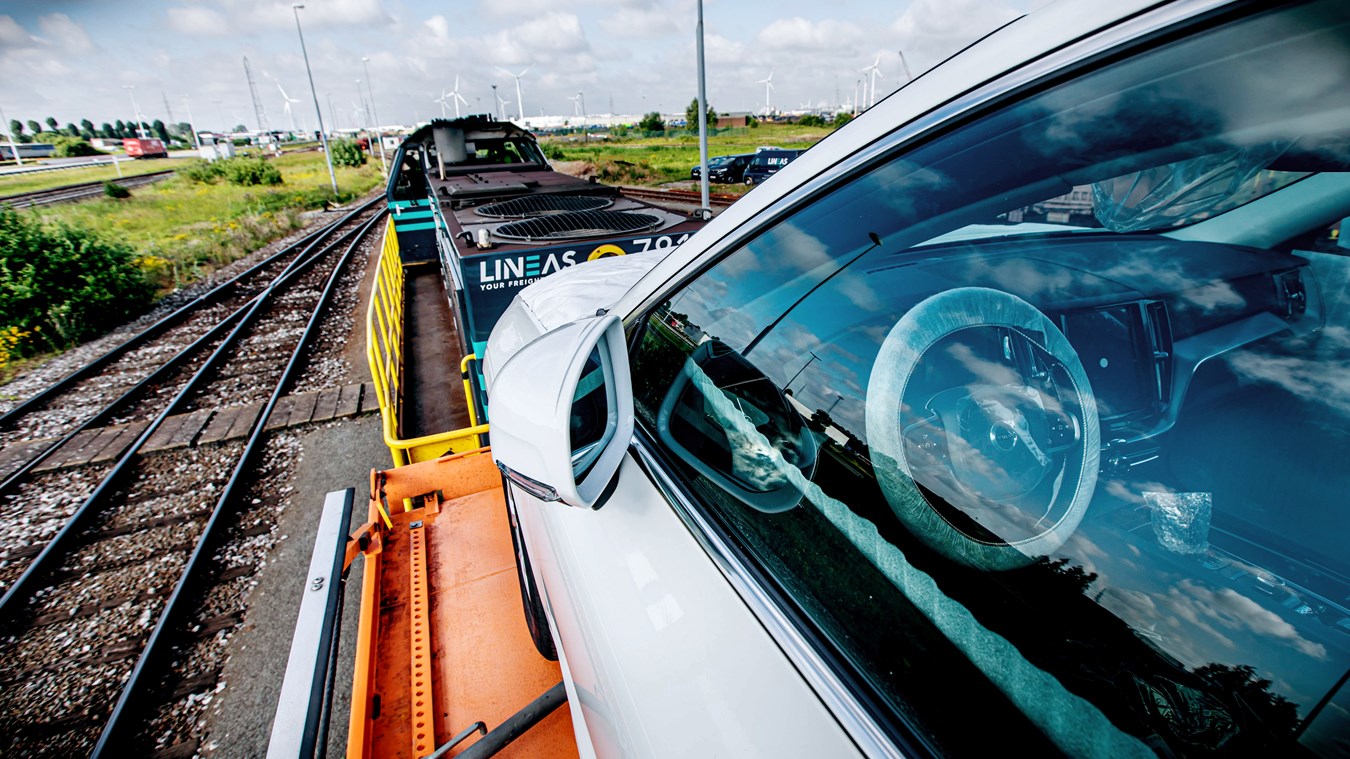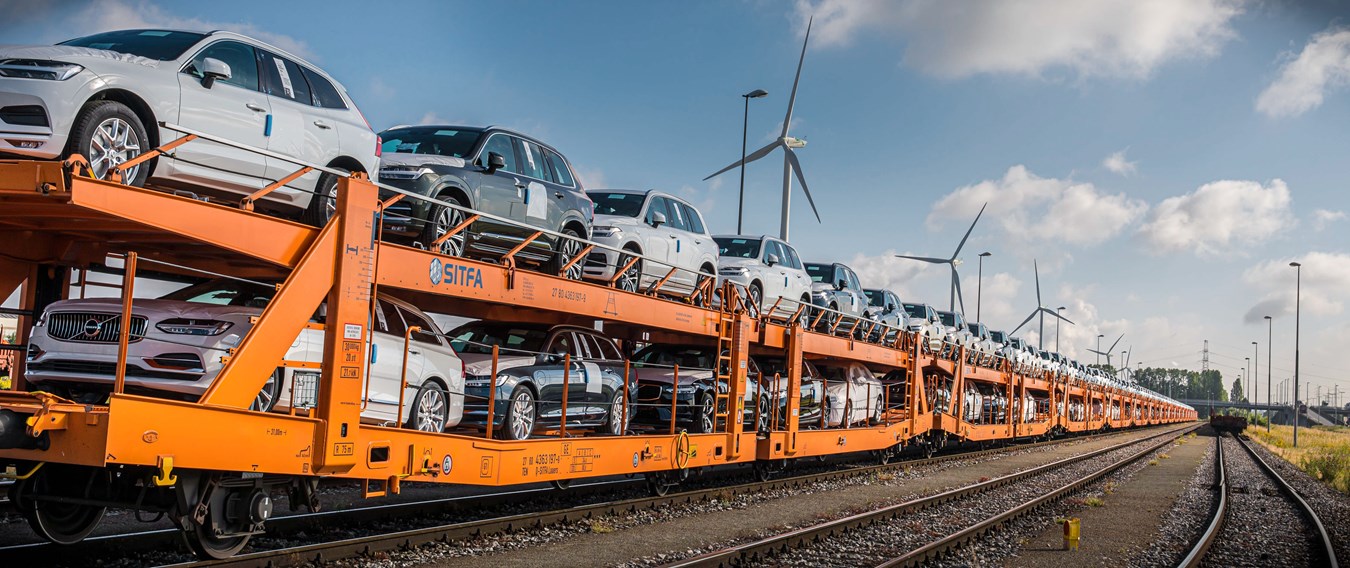Volvo Cars’ move to use trains to transport its cars instead of trucks has led to huge reductions in emission in the life-cycle of its vehicles.

Volvo is a car brand that has always pioneered for greener changes in the industry, and as a leading car brand has championed many moves that have acted as a shining example to others. Just recently, the CEO Håkan Samuelsson spoke about the necessity for a green recovery as industries begin to emerge from the COVID crisis, while its factory in Chengdu, China signed a deal to ensure 100% of the electricity at the plant will come from renewable sources. However, sometimes it is the changes that seem the least ‘glamorous’ that make the biggest impacts, as recently it announced it is further able to reduce emissions by switching from trucks to trains to transport cars between its manufacturing plants and new car depots.

While trucks, especially in Europe, are still a very common form of logistics for the transportation of new cars, the amount of emissions they produce (not to mention the damage done to roads) is high. Volvo intends to make an impact on emissions whenever it can by removing the need for trucks in places where a rail network connects its manufacturing facilities with car depots.
For example, by using trains instead of trucks on the route between its Ghent, Belgium-based manufacturing plant and a depot in the North of Italy, it has been able to reduce CO2 emissions on this step of the logistics chain by almost 75%. On another route, from Ghent to a second depot in Austria, emissions were cut by almost half since switching to rail transportation.
Both initiatives form part of the climate action plan that Volvo Cars revealed earlier this year. Under the plan, the company aims to reduce the carbon footprint of the complete lifecycle of its cars by 40% between 2018 and 2025, which will require a 25% reduction in operational emissions, including in logistics. The 2025 plan is one tangible step towards Volvo Cars’ ambition of becoming a climate-neutral company by 2040.
Not only does Volvo speak about the changes the industry needs, but it also chooses to lead by example, letting actions speak for themselves. “When we said we planned to significantly reduce emissions across all our operations, we meant it,” said Javier Varela, Senior Vice President of Manufacturing and Logistics at Volvo Cars. “Our logistics network is just one piece of that puzzle, but an important one nevertheless. This is one example of our commitment to reducing our impact on the environment through meaningful, concrete steps.”
Outside Europe, Volvo Cars is also looking to use rail transport on a wider scale in China and the United States. At present, cars from its China-based manufacturing plants are transported to the Ghent port in Belgium by train twice a week. Within Russia and China, regional train networks deliver new Volvo cars to depots around the country.

Javier Varela, Senior Vice President of Manufacturing and Logistics
In the US, the company’s Charleston manufacturing plant has tapped into a well-established rail cargo network that takes new cars to depots in cities across North America. Already, these trains do the equivalent work of dozens of trucks per week, and in doing so make vast reductions to emissions.
Volvo Cars’ climate action plan represents perhaps the most ambitious plans by an automotive brand. Following the Paris Climate Agreement of 2015, which seeks to limit global warming to 1.5 degrees Celsius above pre-industrial levels, Volvo Cars implemented meaningful and concrete actions to make a difference in this effort.

Volvo Cars’ ambitions of climate neutrality by 2040 go beyond addressing tailpipe emissions through all-out electrification, as it realises that electrification of its vehicles is simply not enough to reduce its impact on the environment. So, it is important to reduce carbon emissions across all aspects of the business: in its manufacturing network, its wider operations, its supply chain and through recycling and the reuse of materials.
The company’s electrification ambitions are reflected in the recently launched brand new Recharge car line. Recharge will be the overarching name given to all chargeable Volvo cars with both fully electric and plug-in hybrid powertrains. The Recharge car line aims to further boost sales of Volvo Cars’ electrified car range and encourage drivers of plug-in hybrids via incentives to use ‘Pure mode’ as much as possible.
This article uses content taken from the Volvo Cars official website. To view the original article click here.


